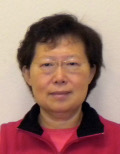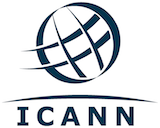Keynote Speakers
Lixia Zhang
University of California, Los Angeles, USAVisit Homepage
4th Jan 2018
The Internet has become an indispensable part in our modern society. In this talk I will share my own observation and thought from watching the Internet's growth over the last 36 years, and make case for its inevitable evolution toward a new Internet protocol architecture. I'll also report on some recent progresses in the design and development of Named Data Networking, together with the remaining challenges.
Lixia Zhang received her master's degree in Electrical Engineering in 1981 from California State University, Los Angeles and her Ph.D. in Computer Science from MIT in 1989. She joined Xerox Palo Alto Research Center as a member of research staff. She is now a professor in the Computer Science Department of UCLA.
Zhang was one of the 21 participants in the initial meeting of the Internet Engineering Task Force in 1986, the only woman and the only student at the meeting. In the past she served as the vice chair of ACM SIGCOMM, member of the editorial board for the IEEE/ACM Transactions on Networking, member of the Internet Architecture Board, and co-chair of the Routing Research Group under IRTF. She is a fellow of ACM and IEEE. She received IEEE Internet Award in 2009 and holds UCLA Postel Chair in Computer Science.
Krishna Gummadi
Max Planck Institute for Software Systems (MPI-SWS), GermanyVisit Homepage
5th Jan 2018
All popular social media sites like Facebook, Twitter, and Pinterest are funded by advertising, and the detailed user data that these sites collect about their users make them attractive platforms for advertisers. In this talk, I will first present an overview of how social media sites enable advertisers to target their users. Next, I will pose and attempt to answer the following four high-level questions related to privacy, fairness, transparency and control of social media advertising today.
- Privacy threats: what personal information about users are the sites leaking to advertisers to enable targeted ads?
- Fairness: can an advertiser target users in a discriminatory manner? If so, how can we detect and prevent discriminatory advertising?
- Transparency: can users learn what personal data about them is being used when they are targeted with an ad?
- Control: can users control what personal data about them is being used when they are targeted with an ad?
Krishna Gummadi is a tenured faculty member and head of the Networked Systems research group at the Max Planck Institute for Software Systems (MPI-SWS) in Germany. He received his Ph.D. (2005) and M.S. (2002) degrees in Computer Science and Engineering from the University of Washington. He also holds a B.Tech (2000) degree in Computer Science and Engineering from the Indian Institute of Technology, Madras.
Krishna's research interests are in the measurement, analysis, design, and evaluation of complex Internet-scale systems. His current projects focus on understanding and building social computing systems. Specifically, they tackle the challenges associated with (i) assessing the credibility of information shared by anonymous online crowds, (ii) understanding and controlling privacy risks for users sharing data on online forums, (iii) understanding, predicting and influencing human behaviors on social media sites (e.g., viral information diffusion), and (iv) enhancing fairness and transparency of machine (data-driven) decision making in social computing systems.
Krishna's work on online social networks, Internet access networks, and peer-to-peer systems has led to a number of widely cited papers and award papers at IW3C2's WWW, NIPS's ML & Law Symposium, ACM's COSN, ACM/Usenix's SOUPS, AAAI's ICWSM, Usenix's OSDI, ACM's SIGCOMM IMC, and SPIE's MMCN conferences. He has also co-chaired AAAI's ICWSM 2016, IW3C2 WWW 2015, ACM COSN 2014, and ACM IMC 2013 conferences.
Dhananjay Gore
Qualcomm Research, IndiaVisit Homepage
6th Jan 2018
5G will provide a unifying connectivity fabric to connect new industries/devices, empower new services, utilize new spectrum bands/types and bring new levels of cost/energy efficiency. 5G will empower many new connected services across an array of world-changing use cases across Enhanced mobile broadband, Mission-critical services and Massive IoT. This talk will discuss some of the drivers for 5G and give a glimpse on the innovations that will provide the technical platform to support these new and diverse types of applications in a single unified air-interface.
Dhananjay Gore is the Head of Qualcomm Research India at Bangalore. He is responsible for all RnD efforts at the center spanning 3G/4G (UMTS & LTE) protocol and modem design, imaging, virtual reality, ASIC enablement and embedded software. He also leads the modem and multi-media systems engineering teams for chipset product development at Qualcomm India.
Dhananjay received his Bachelor of Technology Degree in Electrical Engineering from IIT-Bombay and Masters and Ph.D. Degrees in Electrical Engineering from Stanford University. He is a recipient of the Institute Silver Medal from IIT-Bombay for graduating first in his class. While at Stanford, Dhananjay co-authored a graduate level text book on MIMO, “Introduction to space-time wireless communications”.








































